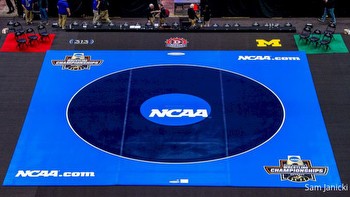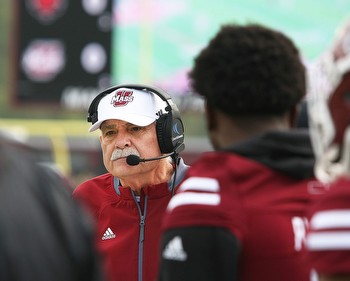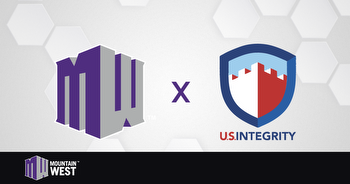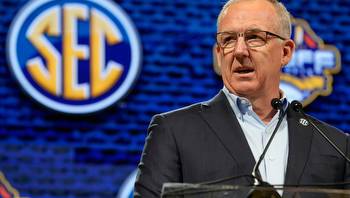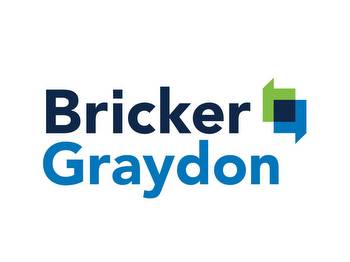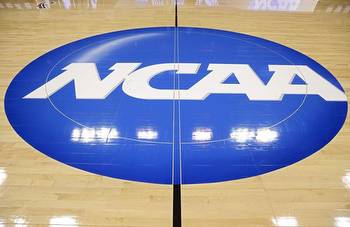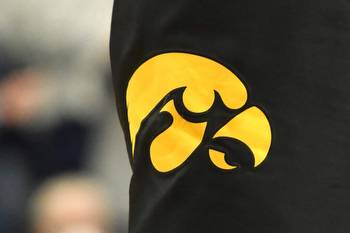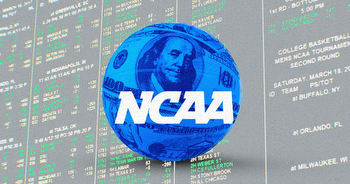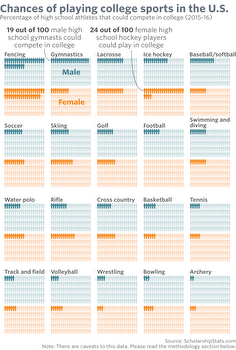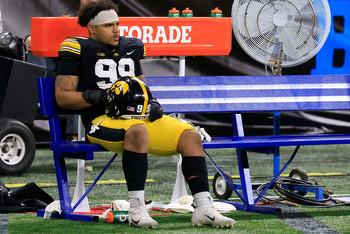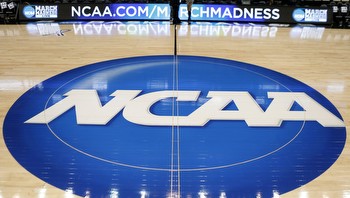MAC Commissioner Jon Steinbrecher gives 2023 State of the Conference speech

A year removed from occupying the House of Blues in Cleveland, Ohio, the location of the Mid-American Conference Media Day changed once again for 2023, taking place at the historic Fox Theater in Detroit, Michigan. But the more things change, the more they stay the same, as commissioner Dr. Jon Steinbrecher took to the podium Thursday morning to address the media.
Steinbrecher hit on a number of both conference and national topics in the speech, one which was notably shorter than last year’s.
Steinbrecher started off the speech by welcoming the two new football coaches (Kent State’s Kenni Burns and Western Michigan’s Lance Taylor), as well as the two new athletic directors (Bowling Green’s Derek van der Merwe and Ball State’s Jeff Mitchell), before eulogizing former commissioner Jim Lessig, who is credited with the integration of women’s sports into the MAC and negotiating the conference’s first regional television deals.
Lessig, who was also a key part of BGSU’s athletics legacy, died in June at the age of 87.
After addressing a number of rule changes effective for the 2023 season, Steinbrecher then briefly touched on the College Football Playoff, which recently announced it would expand to 12 teams in the near future, saying it is still “a work-in-progress” and that there are a “myriad of details which are yet to be worked out.”
In 2022’s State of the Conference, Steinbrecher was an aggressive advocate of expansion, stating the CFP’s prior setup “devalues the last two months of the regular season” and led to several “unintended consequences.”
Steinbrecher also discussed the impact of name, image, and likeness (NIL) in the last year, clarifying the league’s position on how student-athletes should be protected in such a marketplace.
Without mentioning specifics, Steinbrecher addressed two such laws he objected to: an NIL law which recently passed in Missouri, where high school students could start collecting money as a minor as long as they commit to play in-state after graduation, and an NIL law in Texas which prohibits the NCAA from enforcing their set of NIL standards if accused of an NCAA violation or if the national standards are different from the state’s.
“... It is more evident than ever of the need for a national solution which will have to be approved through Congress,” Steinbrecher opined. “There is no need to apologize for that; intercollegiate athletics have a special place in the culture and DNA of our institutions of higher education and, in fact, this nation.”
Steinbrecher mentioned he had been lobbying Congress regarding NIL and “other topics of interest” over the past 18 months, and said that lawmakers are interested and aware of the developments at hand in that space.
“What we need is a common set of regulations that govern NIL across the country, pre-empting state laws, which includes a package of consumer protections for the student-athletes, such as a standardized NIL contract,” Steinbrecher specified. “[N]ot to mandate the terms, but to insure that the pertinent issues are addressed, such as the length of the deal agent fees and the dissolution of the deal.”
Steinbrecher went on to discuss executing such an idea, suggesting a single-entity clearinghouse to “provide a baseline level of transparency to ensure deals are reflective of the market” and to ensure that NIL rights do not merely become inducements.
“The intent of any of this is not to inhibit the student-athletes to monetize the legitimate NIL opportunities,” Steinbrecher said. “However, we do have a responsibility to ensure that student-athletes who have likely never engaged with an agent or a lawyer, or negotiated a promotional agreement, to know the issues that must be addressed and make sure their rights are protected.”
Steinbrecher reiterated that there needs to be a single standard “that is not manipulated for the competitive advantage of one state over another,” stating it would be difficult to “conduct national championships without national regulations.”
The transfer portal has been an extremely loaded topic over the last few years, especially in MAC circles, as the conference has been adversely affected with the sheer number of departures. This offseason alone, Kent State lost all three of their First Team All-MAC contributors and the majority of their postseason selections after the departure of head coach Sean Lewis to Colorado.
Steinbrecher expressed his disapproval about the NCAA’s lax enforcement of transfer rules, arguing that going back to at-will transfers (as opposed to blanket waiver transfers) is more beneficial for student-athletes from an academic level and for teams from a roster-building level.
“Student-athletes should have the ability to attend the institution of their choice,” Steinbrecher said. “However, once a student-athlete has transferred once — absent special and unique circumstances — the student-athlete should have to sit a year in residence before being eligible to compete.”
Steinbrecher acknowledged that coaching departures made the initial limits of 25 full scholarships too low, as teams could not always reload the gaps left behind, but also implored NCAA leadership to reconsider both blanket waivers and counter limits for scholarships instituted over the past two years, as in his opinion, “no limits are an example of the pendulum swinging the other way.”
Again without naming specifics, Steinbrecher referred to an example of a new coach coming in to a program and releasing the majority of the team so he could bring in a new set of student-athletes through the portal.
“Regardless of whether a coach leaves on his own, or is released, the institution has a responsibility to the student-athletes who are left behind,” Steinbrecher emphasized.
Steinbrecher addressed the acclimation to legalized gambling in the college football landscape, noting betting is approved in every state the MAC covers. Steinbrecher stated the conference has been proactive in ensuring games are not compromised, including hiring an integrity service to scan both domestic and international betting houses.
Steinbrecher’s main messaging when it came to legalized gambling was the mental health of student-athletes, coaching staffs and officials, citing the increase of targeted online harassment since betting has become more accepted in society.
“Social media has made it all too easy to send messages of intimidation and hate,” Steinbrecher stated. “We will work with our membership to provide mechanisms to report such harassment and intimidation, and will seek assistance from the appropriate governmental agencies.” Steinbrecher was harsh in his assessment of such behavior, proclaiming such harassment should be a felony charge.
Steinbrecher also noted as part of the MAC’s already-instituted mental health initiatives (launched back in 2016), resources are readily available therapy after harassment or help with gambling addiction is needed.
Steinbrecher, who has been the commissioner of the Mid-American Conference since 2009, and a Division I commissioner since 1994, also took a moment to address a narrative about the college sports landscape itself, emphasizing the need to embrace change as it happens and let go of what used to be.
“We all too often romanticize the past, thinking days gone by were better than the present,” Steinbrecher philosophized. “We’re living in greatness today. Failure for us to look forward may lead us to reject change that could, in fact, make us better. There exists amazing opportunities in front of us, despite the challenges and obstacles.”
Steinbrecher closed out his speech with a more optimistic tone, waxing nostalgic about the conference as a whole.
“There has always been a resource gap in intercollegiate athletics,” Steinbrecher asserted. “There has always been a challenge to schedule home games. It is always hard to win games — and even harder to win championships. That is the challenge yesterday, today, and tomorrow.”
“For 76 years, this conference [and] its student-athletes have done incredible things and will continue to do so, if we dare to rise up and meet those challenges,” Steinbrecher continued. “This membership will support and lift each other up, because that’s what strong, supportive and stable conferences do.”
The MAC season kicks off on Saturday, August 26, when Ohio travels to San Diego, California to take on the San Diego State Aztecs. Kickoff is scheduled for 7 p.m. ET.


